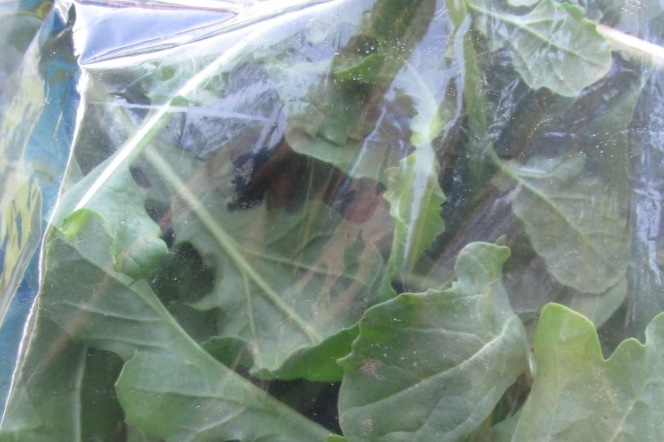Availability, Nutrition, and Recipe Suggestions


In Season: Arugula thrives best in cooler weather, we typically produce a “spring” crop for harvest in May & June and a fall crop running September into October.
Storage: Arugula can be kept in a plastic bag in the fridge with a paper towel or two if you wash it. The goal for keeping greens in top quality is to control the rate of respiration (hence the plastic bag) and temperature (hence the refrigeration).
Preservation: I’ve never met anyone who has preserved arugula, but you could… although typically eaten fresh, if your garden bounty over produces you can freeze chopped arugula in olive oil. Reuse it all winter as a spike in salad dressing, in pasta, or a stir fry.
Production Notes: Arugula is a member of the brassica family of crops (along with broccoli, cabbage, and kale). It is a popular target of the notorious flea beetle. At Brix Bounty farm we use row cover to help protect our spring crop from flea beetles. We typically take a break from seeding arugula for the height of the summer when its naturally most pungent. Fall crops are direct seeded starting in August and harvested from early September into the fall. For our wintertime CSA members we include arugula in our harvest plans for November and December and again in the early spring.
Varieties: Astro arugula has long been our variety of choice, because of its solid yields and moderate flavor.
Nutrition: Arugula is low in Saturated Fat, and very low in Cholesterol. It is also a good source of Protein, Thiamin, Riboflavin, Vitamin B6, Pantothenic Acid, Zinc and Copper, and a very good source of Dietary Fiber, Vitamin A, Vitamin C, Vitamin K, Folate, Calcium, Iron, Magnesium, Phosphorus, Potassium and Manganese. [http://nutritiondata.self.com]
Deep Nutrition: Arugula is one of the brassica family vegetables along with broccoli and cabbage. These vegetables are rich in glucosinolates, which studies show may reduce the risk of developing lung, prostate, breast and pancreatic cancer. [Ecowatch.com]
Deep Science: Other studies have linked it to relief from gastric ulcer and psoriasis, as well as protection from skin, lung, and mouth cancers.
Arugula is one of the leafy green vegetables that contain cleansing properties to counteract the poisoning effects of heavy metals in the system, particularly in the liver. [foodfacts.mercola.com]
Preparation: Arugula should be rinsed and patted dry before use. Best used whole and raw in salads, or chopped finely for sauces. Techniques: braise, raw, saute, soups.
Arugula Recipe Suggestions: Go Beyond Bruschetta with these ideas…
- Wilted Arugula [marthastewart.com]
- Arugula Pesto [www.epicurious.com]
- Arugula and Watermelon Salad with Cucumber and Feta [BHG.com]
- Another Arugula Salad-Light and Simple [kalynskitchen.com]
Arugula also pairs well with – Goat or Parmesan cheese, endive, garlic, olive oil, radicchio, tomatoes, or balsamic vinegar.
Yum.
authored by: Danny Guillotte and Derek Christianson
Updated February 2019